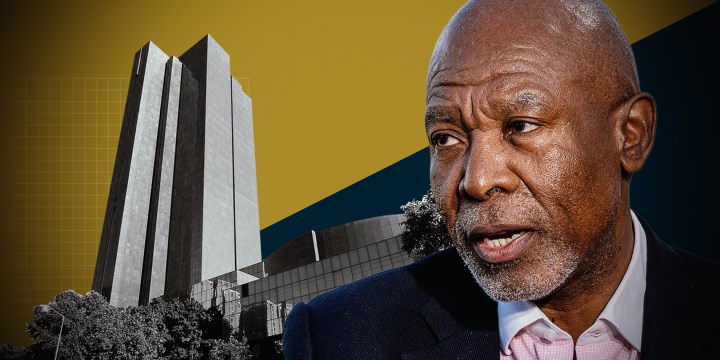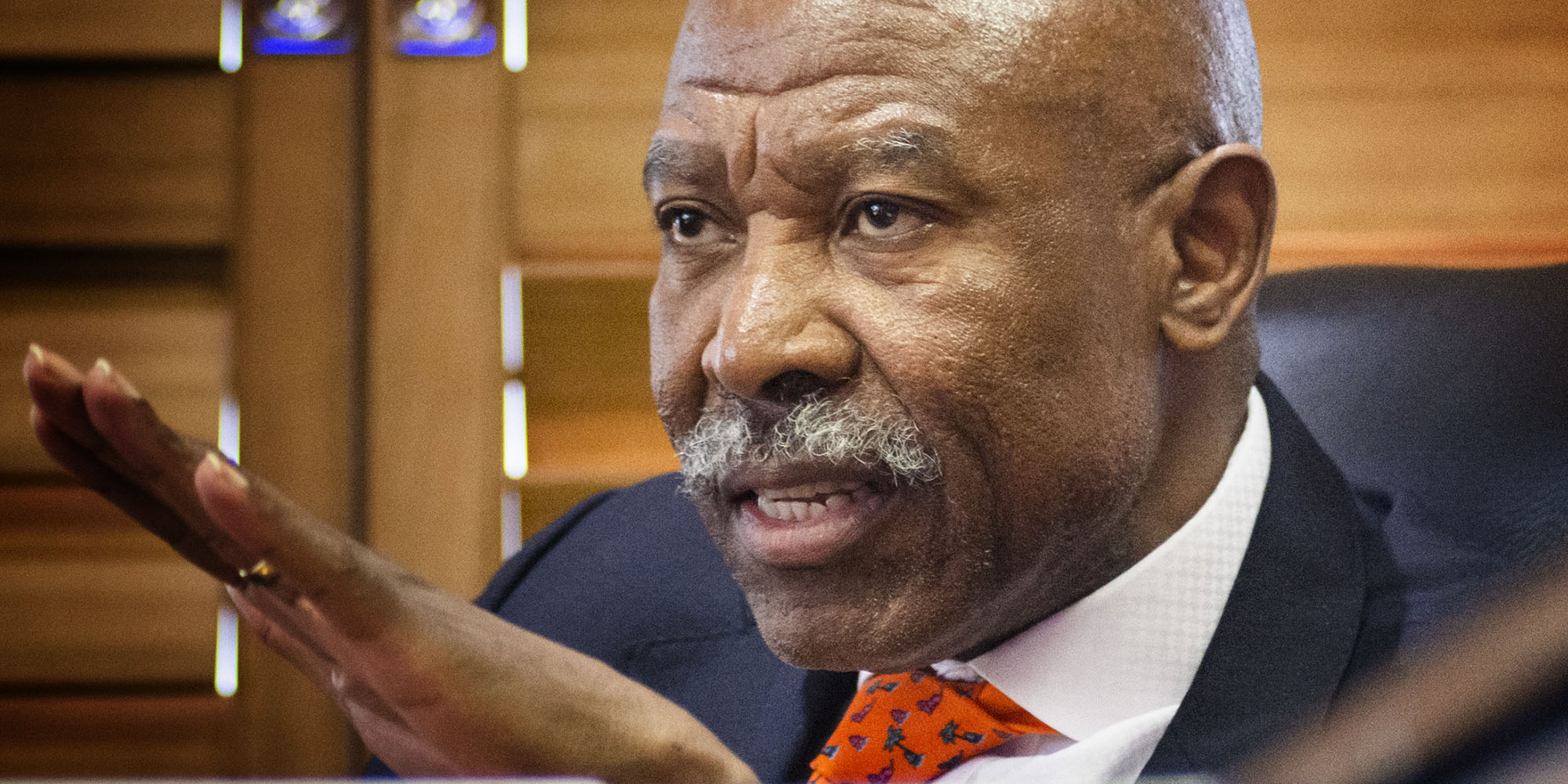LOADED FOR BEAR
With Kganyago’s third term clinched, SA Reserve Bank will remain island of policy stability

Lesetja Kganyago, the plain-talking governor of the South African Reserve Bank, has been appointed to a third five-year term. This means the Sarb will likely remain an island of much-needed policy stability in a choppy sea of uncertainty.
First appointed as governor in 2014, Kganyago will now serve until November 2029, a 15-year stint which, if he completes it, would make him the second-longest serving governor in the South African Reserve Bank’s (Sarb) history.
So on at least one front, there should be policy continuity as the 29 May election looks set to send South Africa into the largely uncharted waters of coalition politics at the national level. That’s the kind of turbulence that can make investors seasick while compounding the misery of the poor.
But in this sea of uncertainty, there will be an island of stability.
The Sarb has maintained its independence — formalised in 1996 — in the democratic era even as the governing African National Congress (ANC) has stumbled down the path of corruption, policy murkiness and state failure. South Africa’s barely-growing economy and the plight of the poor would be in even worse shape if the keys to the Sarb and its policies were not in safe hands.
The Sarb’s primary mandate “… is to protect the value of the currency in the interest of balanced and sustainable economic growth”.
To that end, the main tool at its disposal is the setting of interest rates to meet a target for consumer inflation. In the Sarb’s case, that target is 3% to 6% and the central bank has been inflation targeting since 2000.
Read more in Daily Maverick: SA consumer inflation slows to 5.1% in December, averaging 6% in 2023
Kganyago’s predecessors in the democratic era since 1994 — Chris Stals, Tito Mboweni, and Gill Marcus — were all focused on inflation. But in the case of Kganyago, it seems to give him sleepless nights.
In a virtual public lecture to Stellenbosch University in 2021, Kganyago noted that the Sarb that year was commemorating its centenary, 25 years of independence, and 21 years of inflation targeting.
“Inflation-targeting is the youngest of these achievements, but it may also be the biggest success,” he said.
The governor went on to outline the reasons for this success, starting with the point that “inflation-targeting is more flexible than critics claim. It doesn’t require the central bank to cancel out every price shock using interest rates … What central banks need to do is convince people that they will do what it takes to steer inflation back to target, over a realistic time frame”.
Read more in Daily Maverick: SA Reserve Bank governor hints South Africa could move to a lower inflation target
Convincing people — consumers, markets, investors — that the central bank is up to this task anchors inflation expectations and gives the Sarb credibility. And its flexibility was on full display when it took a chainsaw to interest rates in 2020 when the economy was collapsing under the weight of the lockdowns to contain the Covid-19 pandemic.
Clarity and simplicity are also hallmarks of inflation targeting.
“The second secret of the success of inflation-targeting is that it is simple …By adopting inflation-targeting, we made a clean break from the era of opaque policy and confusion. The sad truth is: if everything is a priority, nothing is a priority,” the governor said.
And simplicity enhances accountability.
“The third, and crucial, factor behind our inflation-targeting success has been accountability. Our goal is clear and public, and the evidence for evaluating our performance has been readily available in the form of inflation data independently produced by Statistics South Africa (Stats SA).”
At that time — September 2021 — inflation had averaged 5.8% since 2000, so was within the target range over that period. And for the previous five years it had averaged 4.5%, right smack in the middle of the target range, which is the Sarb’s preference.

Lesetja Kganyago, governor of the South African Reserve Bank. (Photo: Waldo Swiegers / Bloomberg via Getty Images)
Since then, South Africa’s consumer price index (CPI) averaged 4.5% for all of 2021, 6.9% for 2022, and 6.0% for 2023. This is a period that has stood out for external shocks outside of the Sarb’s control such as Russia’s invasion of Ukraine, which lit a fire under global food and fuel prices.
And yet the Sarb has managed to steer inflation back below its target range. It has not been above it since May of last year and CPI was running at 5.3% in January.
The governor also pointedly underscored the role of “luck” in his address.
“… the Sarb’s success with inflation-targeting also comes down to a fourth factor, which is good luck … thanks to factors such as our constitutional independence, we have been able to avoid State Capture, unlike many other organs of government. This means we have stayed focused on serving the public, instead of diverting resources to patronage networks.”
In other words, the Sarb has been doing its job instead of sticking its snout in the trough.
It’s hard to overstate the pernicious impact of inflation on the economy and society, and the value of an independent central back to keep it in check.
One only has to look at the fate of economies that lack independent or credible central banks.
Turkey is on its fifth central bank governor in five years and in last June Hafize Gaye Erkan — the first woman to run it but who has since quit — launched aggressive rate hikes after years of loose policy and soaring prices under President Tayyip Erdogan.
Turkish inflation is currently around 65% — the kind of levels which simply destroy confidence while eroding incomes and savings. It has simply run riot for so long that it will take a long time to bottle it up.
Other examples include Zimbabwe and Venezuela, which have been ravaged by periodic bouts of hyperinflation against the backdrop of imploding economies.
“The easiest way to destroy price stability in South Africa would be to insist on low interest rates because of unemployment. Our labour market is so dysfunctional, this excuse would rule out ever raising rates — a policy that would leave us in the worst-case scenario of high unemployment and high inflation,” Kganyago noted in his speech 2-1/2 years ago.
High unemployment and high inflation mean stagflation, and the poorest of the poor will be the hardest hit in such a scenario.
Critics complain that the Sarb’s relentless focus on inflation prevents it from a policy stance that accommodates economic growth and job creation. That is a call for cheap populism and the kind of disasters that have swept Turkey, Zimbabwe, and other countries that have embarked on that ill-conceived path.
If your economy is in the throes of high and accelerating inflation, then it will not inspire consumer or investor confidence and grow at a brisk enough pace to create jobs.
This is why the Sarb is likely to hold rates steady when its Monetary Policy Committee (MPC) meets next week to deliberate the issue. It does not bend to the winds of populism and South Africans are better off as a result.
And it looks set to remain a model of sobriety in the face of the populist political pressures that may be unleashed after the 29 May elections. DM




















 Become an Insider
Become an Insider
Thank goodness